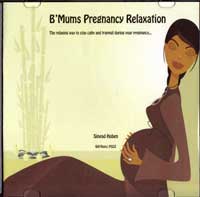Pregnancy Complications - Pre-eclampsia
Although many pregnant women suffer some degree of swelling during pregnancy, such as in the hands and feet, if you suffer any sudden or unexplained swelling it is very important you report it to your midwife or gp immediately as it can signify the start of a very serious pregnancy condition known as pre-eclampsia.
Pre-eclampsia normally occurs during the second trimester and can be signified by high blood pressure, protein in the urine and sudden swelling and weight gain as a result of fluid retention.
Very often it can be managed well, although not cured, so it is important to let your gp or midwife know if you suspect you may be suffering from it. It can pose a risk to your baby because the flow of blood to the placenta is reduced causing insufficient oxygen and nutrients to get to the baby and as a result your baby's growth may be restricted.
Left untreated, pre-eclampsia can develop into a sometimes fatal condition, eclampsia. Eclampsia usually develops during late pregnancy or shortly after birth and causes the blood pressure to rise rapidly, sometimes leading to convulsions, seizures and coma, posing a severe risk to both mother and child.
Risk Factors
Around 7% of pregnant women will suffer from mild pre-eclampsia whilst only 1% may go on to develop full-blown eclampsia. Almost 50% of women suffering eclampsia will develop it after the birth.
It is not yet known what causes pre-eclampsia although there are several known risk factors.
Pre-eclampsia is more common in first-time pregnancies and if there has been a space of more than 10 years between your pregnancies.
It also more likely to affect women:
- who are 40 or older
- have a family history of pre-eclampsia
- who were clinically obese at the start of their pregnancy
- carrying twins or multiples
- have a serious medical problem affecting the blood system, such as high blood pressure, kidney problems, diabetes or lupus
- who have had it during previous pregnancies
Monitoring for Pre-Eclampsia
Although pre-eclampsia cannot be prevented, you will be monitored during all your antenatal visits for signs of it developing. It is therefore extremely important to attend all your antenatal checkups and to bring a specimen of urine with you each time which will be tested for protein. Your blood pressure will also be checked at each appointment.
In some cases women thought to be at risk will be offered treatments thought to help prevent pre-eclampsia.
Treating Pre-Eclampsia
If your gp or midwife notices that your blood pressure is raised more than normal they will advise you to get as much bed rest as you can. You may be advised to lie on your left side as this is known to improve blood flow to the placenta. If you find this position difficult you may be told to sit propped up instead.
You will also have your blood pressure checked daily.
If your blood pressure continues to rise you may be admitted to hospital where your baby will be scanned regularly to ensure his growth is not compromised and his heart rate is unaffected.
It is also likely that you will receive injections of magnesium sulphate as it is thought this can reduce the risk of developing pre-eclampsia.
If your condition cannot be stabilised then your baby may be delivered early, sometimes by c-section.
Pre-eclampsia usually resolves itself after the birth, although you are still at risk of developing eclampsia for up to 4 weeks after delivery. This is particularly the case if your pre-eclampsia was very severe or diagnosed after 37 weeks.
Symptoms of Pre-Eclampsia
Pre-eclampsia is a very serious pregnancy complication for both mother and baby and can sometimes develop rapidly. The following symptoms should be reported to your gp or midwife if they occur during the second half of your pregnancy or in the weeks following the birth as early treatment is of extreme importance to improve the chances a successful outcome:
- sudden swelling of the hands, face, or feet
- vomiting
- severe headaches with blurred vision or spots before the eyes
- severe pain in the top of the abdomen
More Pregnancy Complications
- Gestational Diabetes
- Carpal tunnel syndrome
- Placenta previa
- Cholestasis (itching during pregnancy)
- Hemorrhoids
- Backache
- Bleeding
- Constipation
- Indigestion
- Heartburn
- Morning sickness
- Varicose veins
- Stretch marks
- Anxiety
- Depression (pre-natal depression)
- Childbed fever (puerperal sepsis)
Treat Yourself to Me Time!

For the ultimate pregnancy treat, buy our Pregnancy Relaxation CD or download our Pregnancy Relaxation mp3
. Lie back, relax and connect with your unborn baby in the privacy of your own home.
Or, if you're currently struggling with a busy lifestyle and the added demands of parenting, try our Perfect Relaxation for Parents mp3 - take time out for yourself and awaken refreshed and ready to face whatever life throws at you!
Also by BreastfeedingMums
Books We Love!
Support Us!
Write for Us
If you would like to contribute a pregnancy or breastfeeding poem, story or photos, or a miscarriage poem or story, just contact us and we'll add it to the site. Thanks.

